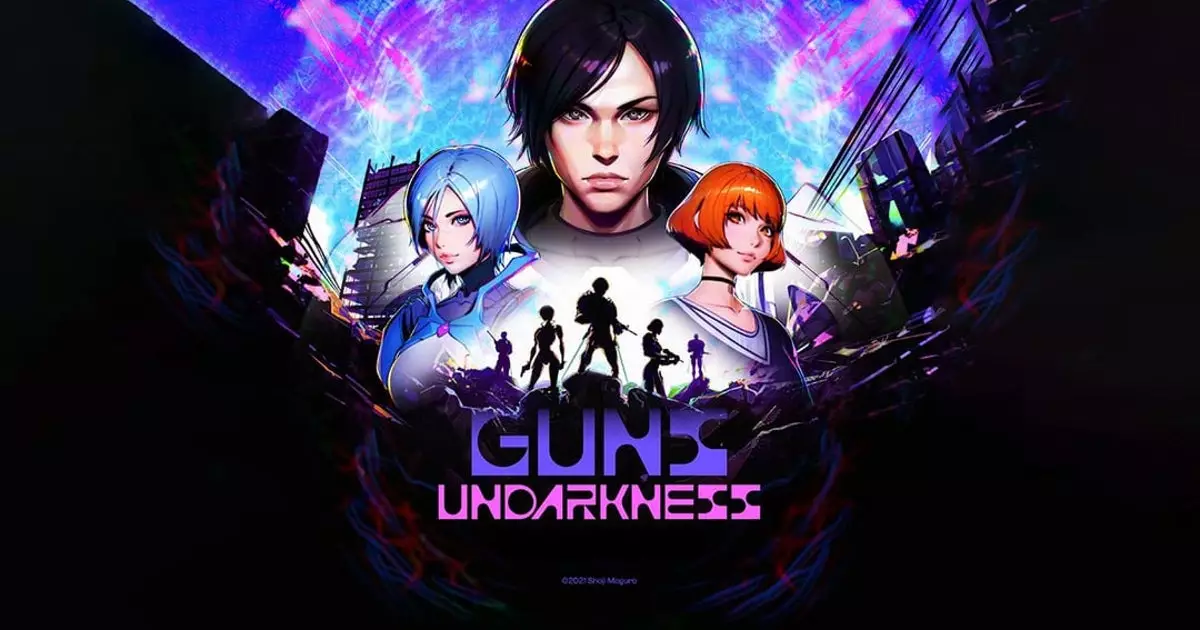In the ever-evolving landscape of role-playing games, the anticipation for new releases is often underscored by curiosity about gameplay mechanics, narrative depth, and artistic contributions. “Guns Undarkness,” the upcoming turn-based sci-fi RPG from renowned composer Shoji Meguro, has the gaming community buzzing with excitement. With a backdrop of a dystopian world marked by nuclear devastation and the conflicts of private military factions, this game merges narrative, music, and visuals in an intriguing manner that demands scrutiny.
Set in 2045, “Guns Undarkness” thrusts players into a starkly divided society, born from technology’s rise during a period of relative calm, a time that exacerbated social inequalities. With factions like the “Haves” and the “Have Nots” seemingly serving as allegories for our present socioeconomic environment, the game intends to tackle significant themes of division, survival, and the possibility of redemption in a fractured world. Drawing from the real-world implications of the so-called “Great Reset,” discussions surrounding social hierarchies take center stage in a narrative that, while borrowing from contemporary events, aims to utilize fiction as a lens for deeper introspection.
The narrative framework points towards a compelling story arc, presenting players with moral dilemmas and complex characters. Unlike many RPGs that traditionally rely on fantasy tropes, the decision to root the narrative in a modern and relatable context could lead to poignant storytelling that resonates with the audience on multiple levels.
At the forefront of “Guns Undarkness” is a talented ensemble of creatives, including Ilya Kuvshinov, a character designer famed for his work on projects like “Ghost in the Shell: SAC 2045.” His unique capability to infuse characters with depth and emotion suggests that players can expect striking visuals that not only complement the gameplay mechanics but also enhance the broader narrative tapestry.
Complementing Kuvshinov is Lotus Juice, a rapper celebrated for his electrifying contributions to the “Persona” series. The combination of Meguro’s musical expertise, along with these artists, promises an aural experience that is both immersive and impactful. An effective score can elevate gameplay, drawing players deeper into the story, transforming emotional moments into resonant experiences. Nonetheless, transitioning from music composition to game design remains an uncharted territory that raises questions regarding the successful amalgamation of these diverse talents.
Turning to gameplay, “Guns Undarkness” features strategic turn-based combat that calls for tactical foresight and coordination among squad members. Players control a team of four soldiers embarking on missions from a submarine base, encountering combat scenarios that blend both stealth and direct confrontation. The method of initiating battles by maneuvering characters into advantageous cover positions invites comparisons to tactical shooters while channeling a distinct RPG flavor by applying turn-based strategies.
The combat system exhibits interesting dynamics with two primary action types: regular attacks and skills, the latter requiring resource management to execute effectively. The incorporation of cover mechanics—allowing skills to be executed without cost when behind cover—adds a layer of tactical depth that encourages players to think strategically, balancing offense and defense in combat.
Additionally, the game introduces a reputation system reminiscent of the “Persona” franchise, enabling character growth based on relational dynamics, enriching the overall player experience. This could potentially foster a range of character interactions, emphasizing the significance of camaraderie and loyalty amidst the chaos of warfare.
Looking Ahead: The Potential for Impact
With its release slated for sometime this year, “Guns Undarkness” has the potential to captivate audiences not only through its engaging combat systems but also its thematic resonance with current global issues. The delicate balance between entertainment and commentary will ultimately define its legacy in a crowded market of RPGs.
As the game’s narrative and mechanics unfold, the industry watches closely. The question remains: will “Guns Undarkness” succeed in delivering an experience that transcends the boundaries of genre and evokes meaningful dialogue among its players? The answer may lie in its ability to harness the power of its creative team while deftly navigating the complexities of its societal commentary. Only time will tell.


Leave a Reply